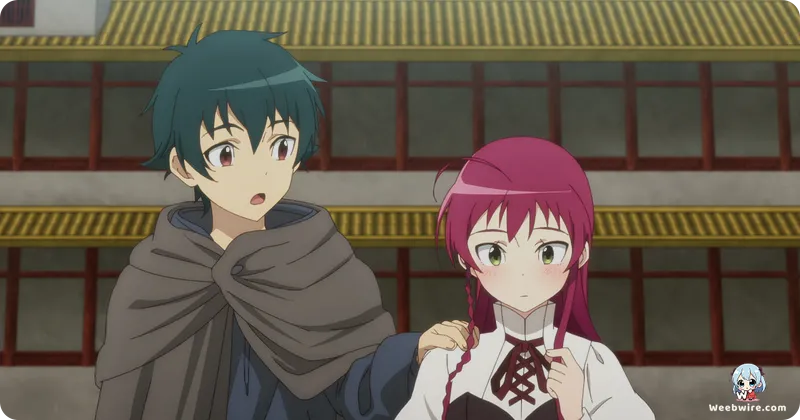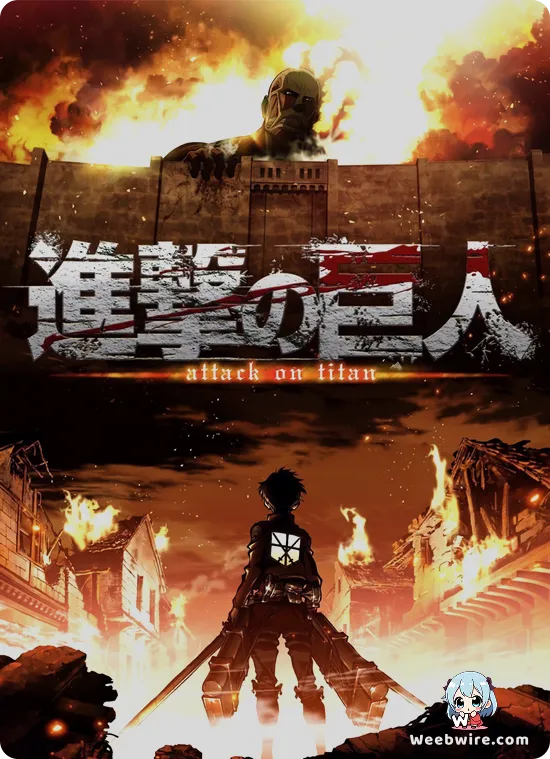Decoding the Demon King: Unearthing the Hidden Puns, Real-World Settings, and Profound Details of The Devil is a Part-Timer!

The Sophistication of Genre Inversion
While The Devil is a Part-Timer! (Hataraku Maou-sama!) is widely recognized for its highly amusing premise—the formidable Demon King Satan Jacob is forced to work at a Tokyo fast-food restaurant—the series' true merit extends significantly beyond its comedic surface. A detailed examination reveals sophisticated world-building achieved through subtle linguistic humor, precise geographical settings, and a deep commitment to anchoring its epic fantasy characters within the most ordinary, relatable aspects of modern daily life. These elements transform the work from a simple situational comedy into a refined example of genre inversion.
Linguistic Puns and Character Identity
The author Satoshi Wagahara's ingenuity is immediately apparent in the protagonist's human identity: Sadao Maou. While "Maou" is the literal Japanese term for Demon King, "Sadao" is an exceedingly common, unremarkable given name. This deliberate juxtaposition forms a sharp, witty pun. By pairing the most terrifying title in the fantasy lexicon with an ordinary, almost forgettable moniker, Wagahara perfectly encapsulates the narrative's core theme: the jarring, humorous collision between monumental, world-shaping magic and the mundane realities of contemporary urban existence.
This commitment to linguistic humor is maintained throughout the series, notably in the name of the main workplace, MgRonald's. This functions as an affectionate, thinly veiled parody, consistently reminding the audience that even supernatural overlords must adhere to corporate hierarchies and customer service mandates.
The Crucial Role of Real-World Geography
The selection of the setting is both deliberate and vital to the series’ success. Unlike many anime that employ fictional or heavily stylized backdrops, The Devil is a Part-Timer! is meticulously situated within the authentic Sasazuka neighborhood of Shibuya, Tokyo. This utilization of recognizable, real-world geography introduces an unexpected layer of realism. Sadao Maou’s cramped apartment, the surrounding local streets, and the public transit routes are verifiable locations.
This concrete realism significantly enhances the slice-of-life component, ensuring that the fantastical situations—such as Maou agonizing over rent payments or Emi Yusa (The Hero) navigating the demands of a call center job—feel intensely credible. The enduring humor of the series stems directly from this high-contrast depiction of their epic pasts versus their current, intensely budget-conscious existence.

Subversion Through Supporting Roles
The supporting cast further emphasizes these thematic concerns. Shirō Ashiya, formerly the fearsome Demon General Alsiel, now operates as Maou’s incredibly frugal house-husband and dedicated finance manager. His relentless pursuit of sales, meticulous monitoring of utility consumption, and constant anxiety regarding Maou’s spending habits brilliantly subvert his original demonic military status. This role reversal serves as more than just a source of comedy; it powerfully underscores the notion that survival in the human realm requires a different form of discipline and strategic thinking than waging war. Ashiya’s transformation symbolizes the profound, often humorous, adaptation required of the refugees from Ente Isla.
The Strength of Human Connection
A key detail often overlooked involves Chiho Sasaki, Maou’s high school colleague. Although she is the most purely human member of the core ensemble, she develops a unique and essential ability: she can occasionally perceive and comprehend the high-level magical language of Ente Isla. This ability is not arbitrary; the narrative explains that her sustained proximity and powerful emotional connection to Maou’s unique magical aura allowed this subconscious understanding to manifest.
This detail strategically positions Chiho as an essential player in the magical conflict, elevating her beyond roles as mere comic relief or romantic interest. It powerfully demonstrates the strength of human connection even when confronted by supernatural forces.
Commentary on Modern Labor
Furthermore, the narrative offers sharp, subtle commentary on modern labor and capitalism. Wagahara utilizes Maou’s tenure as a minimum-wage employee to explore themes of corporate loyalty and the inherent difficulties of earning a living wage in contemporary Japan. The Demon King, who once commanded armies, finds genuine pride and unexpected fulfillment in receiving a promotion at MgRonald's, illustrating a surprising capacity for positive growth driven by human social structures and a strong work ethic. This thematic richness beneath the comedic surface is integral to the series’ lasting appeal.
Credits
The Devil is a Part-Timer!
Author
Satoshi Wagahara
Cover Art
029
Studio
White Fox
Publisher
ASCII Media Works (Dengeki Bunko)
Producers





